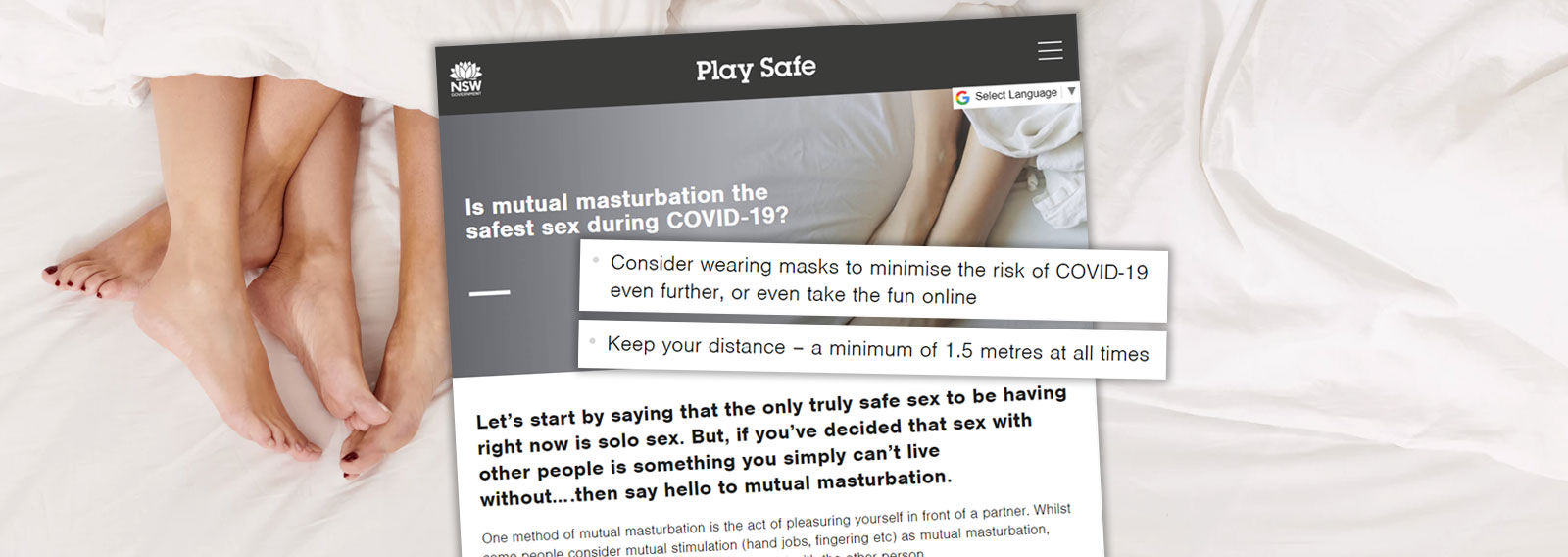Connor Court Publishing’s Fundamental Rights in the Age of Covid-19, edited by Augusto Zimmermann and Joshua Forrester, is a formal Classical Liberal rebuke of totalitarian anti-COVID-19 prohibitions.
Its chief criticism is against the blatant absence of any steadfast verbal or visual confirmation (from most of our elected representatives) affirming a desire for the dogged preservation of civil liberties. Reassurances which should have gone hand-in-hand with most daily briefings about Government initiatives aimed at protecting citizens from the COVID-19 Wuhan Virus, but didn’t.
This lack of passion for the conservation of civil liberties (even from so-called Conservatives or Christians in government) justifies the kind of necessary criticisms found in Fundamental Rights in the Age of COVID-19. One such being the danger of despotic Government’s undermining constitutional law, and placing citizens at risk of Governmental abuses of power by politicians arbitrarily granting themselves the right to act outside the Constitution.
The protection of civil liberties is a debate worth having.
Zimmermann & Forrester’s readable compendium achieves this and more.
Beginning with Rex Adhar’s cost to benefit analysis of lockdowns balancing the economic argument with the medical. His charge that elected representatives have ‘abdicated political decision-making to scientists’ is evidenced by ‘rushed COVID-19 laws’ was pointed. The bottom line is that the disproportionate responses to COVID-19 are likely to create greater casualties than the virus itself.
James Allan rightly states that many of the people advocating for lockdowns weren’t affected by them; and that ‘one of the effects’ of following the Communist Chinese Party’s lockdown fanaticism, was the ‘turning of law enforcement in an arm of the nanny state’ (p.43).
Noting in contrast to many Western nations adopting the CCP’s dehumanising Communist meat-grinder, that Taiwan (p.43) and Sweden’s response worked, and they ‘didn’t drive a truck through civil liberties’ (p.46 & 47) in order to do so. All for a virus ‘nowhere near The Spanish Flu’ in terms of ‘lethality and seriousness.’ (p.44).
As Morgan Begg argues, the virus has been exploited by bureaucrats, with ‘many of the isolation and social distancing rules going beyond what should be required under the guidelines’ (p.69). The ‘disproportionate response’ exposes citizens to ‘structural flaws in [COVID] legislation’ (p. 74) that allows governments (particularly Victorian Premier Daniel Andrews) to rule via emergency powers without accountability.
David Flint’s essay in chapter 5 is on par with Adhar’s ‘abdication’ argument. Governments let [helpful, but also unreliable] computer modelling rule the day (p.83). [i]
Another highlight is Anthony Gray’s distinction between whether a law is ‘prohibitive’ of foundational rights (Constitution) or ‘protecting’ those foundational rights, applied when testing laws against the constitution. For Gray Western Australia’s border closure offends Section 92 of the Australian Constitution.
Expanding a little bit in this direction, Polish contributors, Kudla and Blicharz see the marginalisation of Christians, and Churches as “non-essential” being the result of bureaucrats exploiting COVID-19, as well as ‘the collision of two fundamental rights: the right to practice one’s religion and the right to protect one’s life’ (p.144).
While condemning the marginalising of Christians under COVID-19 “protections” the authors contrasted Poland’s Church and State cooperative approach with the dehumanising, “non-essential” quota applied to the Church by most Western nations (p.159).
In other words, while Pastors and Christians were told that 2,000 years of care and charitable service was “not essential”, Polish (and even Italian) authorities recognised that Pastoral Care is an essential service.
While there are some overlaps, Zimmermann and Forrester’s careful ordering of well referenced essays creates an interwoven text. It all flows in an engaging, consistent and logical direction.
Rocco Loiacono’s criticisms of mandatory COVID-19 vaccinations, and Government overreach, pivot on the principle of the ‘informed consent’ of the governed. For him 2020 saw the rise of ‘elected dictatorships…aided and abetted by a now all-powerful health bureaucracy’ that tends to ignore ‘frontline medical advice, preferring instead to hide behind [a] cadre of unelected bureaucrats, and state of emergency’ powers (pp.165 & 171).
The chapter is punchy, includes Big Tech’s ban on Doctors like Simone Gold, advocates for HCQ, and concludes with an appeal against rapid rollouts, when herd immunity still can’t be ruled out, with reference to the ‘horrible effects of thalidomide, a sedative given to pregnant women in the 1950’s and 1960’ precedent: ‘just because we are assured something is safe, or legal, it doesn’t necessarily mean it is’ (p.180).
Closing out the book, Gabriel Moens, with whom Jacques Ellul would agree (see Technological Society & Propaganda), talks about Government’s manipulative use of behavioural science (Obama in particular p.192), remarking that Government ‘intervention should be a last resort, not a reflex instinct’ (p.193). [ii]
The well-read, and prolific, Bill Muehlenberg presents a theological ‘petition, flight, and as a last resort, fight’ push back against the surrender of religious freedoms to what is essentially leftist Gnosticism (and exceptionalism).
Understood as such through Thomas Sowell’s description of ‘the exaltation of the anointed above others’ (p.220) – and I’d add Eric Voegelin’s ‘Science, Politics and Gnosticism’. The (conservative) sinner saved by grace ridiculed by the Übermensch “victim” class: sinless (leftists) saved by special knowledge.
As was witnessed in Michigan (Gov. Gretchen Esther Whitmer, U.S) and Victoria (Premier Daniel Andrews, Aust.) when these Leftist bureaucrats approved fiats granting Leftists the right of protest, while denying other community groups that same right; often through police intimidation, encouraging neighbour to denounce neighbour, arbitrary arrest, and cost prohibitive fines.
Recall how Black Lives Matter, and anti-Australia “Invasion Day” protests went unopposed, but anti-lockdown protesters and unity preaching patriots were dehumanised as “Grandmother killers”, banned, blocked or defamed by celebrities and the legacy media as selfish deplorables.
While good, Monika Nagel’s defence of civil liberties (Chpt.11) through Maslow’s Hierarchy of Needs, the good and bad of Globalisation, and the purpose of fundamental rights, was unanchored; too existential. It lacked transcendent; concrete, objective ground.
The only protection of fundamental rights comes from the commanded order as revealed by God through His self-revealing in time and space, through Covenant and Christ: God gives us those rights, good government recognises, and protects those rights. It doesn’t make themselves the source of them or the determiners of good and evil.
As has been said, man over-Lord is man overboard. Anything else displaces the Logos from His rightful place, positioning man-made power structures to rule, tyrannically, instead.
Further along, Johnny Sakr’s use of Luis de Molina’s theological argument in respect to the relationship between Divine Sovereignty and creaturely freedom, seems overly verbose.
Though, Sakr’s end point linking up Molina’s theory with a “where is God in all this” question is well worth the effort. From God’s freedom, comes our freedom, and all the responsibility it infers.
Navigating both fatalism and open theism, Molina’s description of God’s Providential activity in the life of humanity as ‘strong actualisation and weak actualisation’ can also be read as Calvin’s distinction between ‘God doing and God allowing”, Karl Barth’s ‘God’s free, Divine Lordship and the invitation for participation given to His Creature as Covenant partners.’
As I have come to express it: Not all suffering comes from God, but God works through all suffering. Those in Christ are not free from suffering but are free in their suffering.
Steven Samson’s appeal to history, predominately the act of ‘interposition’ as just protections applied by just protectors against despotism, whether it be a Monarchy, Democracy, or Republic, joins up with Muehlenberg’s argument.
Samson’s chapter is a fine read. In it pushes towards the conclusion that COVID-19 counter-measures were blurring, if not being used to abolish a separation of powers by merging the judicial, executive and legislative tiers into one politically aligned body.
William Wagner later calls this: ‘Governance by Decree.’
For Wagner, COVID-19 reveals an erosion of fundamental rights as granted by foundational laws. ‘Decades of judicial activism diabolically evolve constitutional law, enabling State Governments to justify their infringements, emboldening them to govern despotically.’ Consequently, we see ‘an activist judiciary enabling Executive tyranny’ (p.351)
Wagner amplifies Samson’s, “which will prevail: politics – the art of persuasion and consensus-building – or despotism – the coercion of surrender and acquiescence? ‘days of reckoning are upon us.” (p.338)
In sum, Fundamental Rights in the Age of COVID-19 asks and seeks to answer two main questions from a Classical Liberal perspective:
- Where are the sunset clauses for Totalitarian anti-Covid-19 measures?
- Why are our politicians not standing up for the protection of civil liberties, with as much gusto as they are protecting people from a pandemic?
There are syntax errors and some spelling issues, making the exceptional body of work look rushed.
I also think the limited number of references engaging with leftist academics might work against the book; opening it up to asinine accusations of confirmation bias. The Spectator and The Australian are linked to frequently.
Overall, Zimmermann and Forrester’s book is a readable compendium, full of uncomfortable truths that we need to adjust our ears to hear.
The slack approach from politicians in protecting civil liberties; the ease at which people have been willing to hand over total control to Government, not just without question, but with thunderous applause, lets an unelected bureaucratic caste lead us, and our elected representatives around by the nose. We shouldn’t be letting such apathy and compromise slide.
COVID-19 prohibitions on fundamental rights are an atrocious betrayal of constitutional protections.
This isn’t justice and liberty. It’s fascism proper – make-up on a muddy pig.
In the words of Anglican theologian John Stott, “…the one thing a totalitarian regime cannot endure is to be refused the total allegiance which it coverts.” [iii]
*Fundamental Rights in the Age of COVID-19 is currently available via Connor Court Publishing or Amazon/AU.
References:
[i] This ‘abdication’ is also evidenced by how the ‘Australian government ignore[d] world’s best practice, that of Taiwan, which was available at the time when relevant decisions were being taken’ (p.79). Reasons for this might include the fact that the CCP has ‘long made it clear that Taiwan is to be treated like a pariah’ (p.80).
[ii] In sum, “never waste a crisis” can be translated: disaster porn is a drug and they know how to use it.
[iii] Stott, J. 1992, Contemporary Christian, Christ & His Cross (p.67)



















